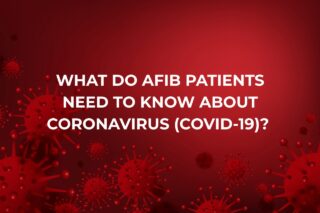
If you are living with depression, or are currently prescribed antidepressant medication, you need to know about the recent studies that link depression and atrial fibrillation (AFib).
Depression Can Affect Physical Health in Many Ways
There are several ways in which depression can affect the physical health of those who suffer from AFib. Mental and physical wellness are closely connected, and there are several potential physical issues that people who are living with depression should be aware of and look for symptoms of.
Depression has been found to carry an increased risk of conditions such as high blood pressure, coronary artery disease, diabetes, and others. Recently, several studies have also added AFib to this list of physical conditions associated with depression.
Research Shows a Link Between Depression and Atrial Fibrillation
According to the results of the Multi-Ethnic Study of Atherosclerosis (MESA), scientists were able to observe for the first time that patients exhibiting symptoms of depression were more likely to develop AFib. This is crucial information for the millions of people living with depression because AFib greatly increases the risk for stroke.
The scope of the study did not allow researchers to definitively prove why people with depression are more likely to develop AFib than those who without it, but there are several ways in which depression affects the body that are possibly related. Depression can result in higher cortisone levels, an overactive autonomic nervous system, and increased levels of inflammation throughout the body, including the heart.
How Antidepressants Can Affect the Heart’s Electrical Activity
Another aspect of the study focused on the use of antidepressant medication. Antidepressants used among those who participated in the study massively increased the risk of AFib in the first month, with the risk gradually decreasing somewhat in the ensuing months. The organizers of MESA agree that more research is needed on this front, but it’s important for patients using antidepressants to be aware of the higher risk of AFib.
What Patients with Depression and AFib Can Do to Protect Themselves
Until more detail is known, awareness of the connection between depression, antidepressant medications, and AFib is paramount. Patients with depression should educate themselves about the symptoms of atrial fibrillation, and talk to their physician if they experience any symptoms or otherwise think they may have AFib.
If you have depression or are taking antidepressants, it’s a good idea to see a cardiac electrophysiologist who can analyze your heart’s electrical activity and gauge your risk for AFib. Heart Rhythm Consultants, P.A. specializes in delivering customized care for AFib patients, so contact our office today to schedule your consultation.



